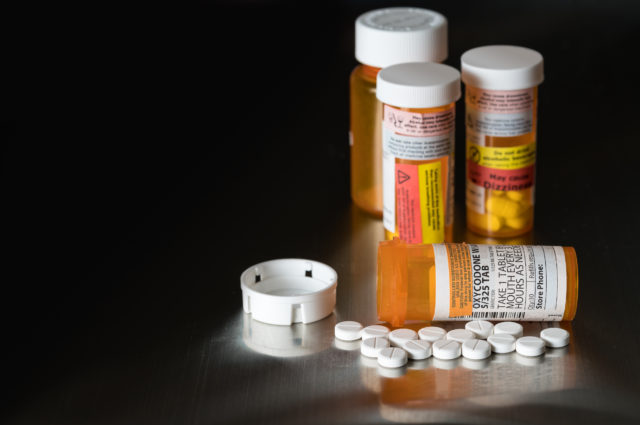AUGUSTA, Maine — Over the last 14 months, with the rollout of Chapter 488, an Act to Strengthen Maine’s Prescription Monitoring Program (PMP), the Department of Health and Human Services (DHHS) has been closely monitoring PMP data and it is already showing early signs of success. The law has made Maine a leader in tackling the state’s opioid epidemic-an issue facing every state across the nation.
“I’m not sure what’s more encouraging, the numbers themselves or that they only represent the early effects of the PMP law,” said State Health Officer, Dr. Christopher Pezzullo.
The law limits the number of opioids a provider can prescribe to a maximum of 100 morphine milligram equivalents (MME) per day. The Department worked closely with the legislature to ensure appropriate exemptions exist for those who may require higher dosages. Research shows that above this threshold the risk of side effects, diversion, addiction, and death is greatly increased.
Data from MaineCare as well as from the PMP itself has revealed a steady decrease in opioid prescriptions greater than 100 MME per day since the law went into effect last July. This decrease suggests that patients are starting to wean off of high dosage prescriptions-making it easier for the individual to decrease their dependency.
“For years, the pharmaceutical industry continued to pitch these highly addictive drugs as cure-alls when in actuality, a powerful opioid prescription may not have been best method to treat a patient’s pain. I believe when we review the numbers a year from now, we will see an even more dramatic decrease as more people continue to wean off of these high dosages of narcotics,” said Dr. Pezzullo.
Maine’s PMP acts as a strong prevention tool as it ensures responsible prescribing habits and prevention of potential abuse and misuse of these drugs- an important step for DHHS to take as Maine found itself in the grips of an opioid epidemic. Knowing that 75% of heroin addictions began with an opioid prescription, the Department recognized that one of the most effective ways to combat an opioid addiction was in a prescriber’s office. Following its implementation, the Department took more proactive steps to strengthen the system including:
– Contracting with the nation’s most successful PMP provider,
– Offering single sign-on capability through a provider’s electronic health record,
– Developing user-friendly PMP reports, and
– Partnering with all New England states as well as New York, New Jersey, Minnesota, South Carolina and Alabama, to share PMP data across state lines.
“When this law was first implemented, we were told time and time again that it was next to impossible to wean a person of off high dose opioids- this data proves that our efforts are accomplishing exactly what the Department envisioned it would,” said Acting Commissioner Ricker Hamilton. “The PMP is one of our strongest tools in keeping people from heading down the path of self-destruction.”
For more information on Maine’s Prescription Monitoring Program, please visit: www.maine.gov/dhhs/samhs/osa/data/pmp/index.htm








